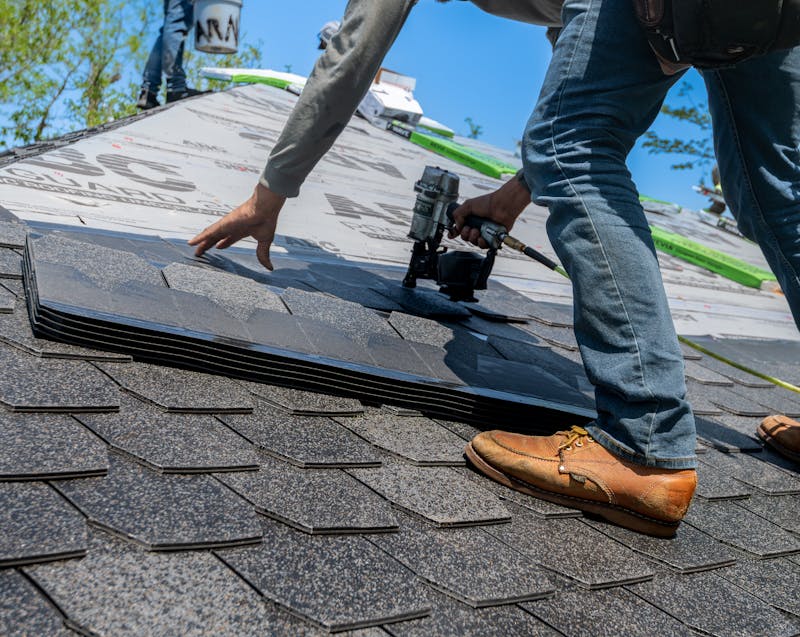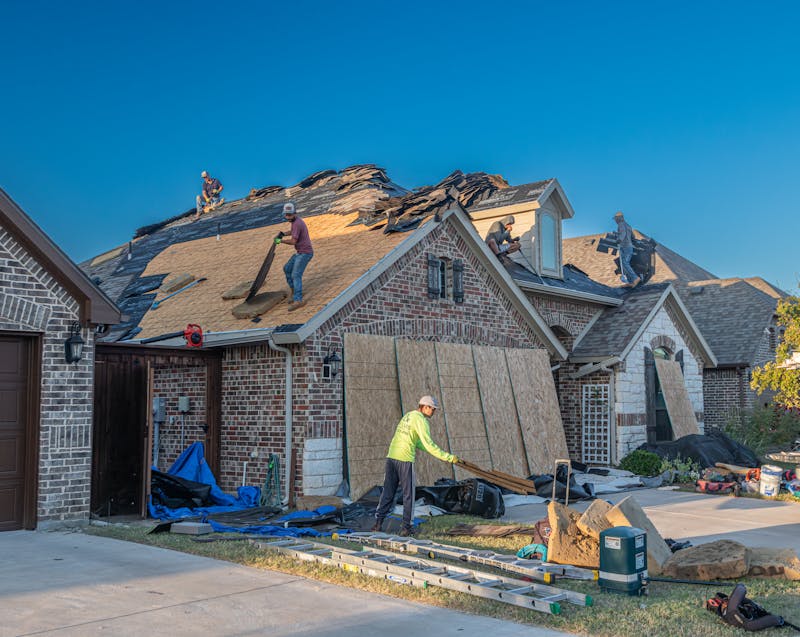- Always verify licenses, insurance, and professional credentials before hiring a roofing contractor.
- Insist on detailed written estimates and contracts to avoid hidden costs and misunderstandings.
- Check references, reviews, and past work to confirm a contractor’s reliability and reputation.
- Be cautious of red flags such as demands for full payment upfront, vague contracts, or refusal to provide documentation.
- A reliable contractor offers strong warranties, clear communication, and ongoing support after the project.
- Choosing quality and trustworthiness over the lowest bid ensures long-term roof durability and peace of mind.
Hiring a roofing contractor is one of the most important decisions a homeowner will ever make. The roof is not only your home’s first line of defense against the weather but also one of its most significant investments. Unfortunately, not all contractors deliver the same level of professionalism, expertise, or reliability. Choosing the wrong one can lead to costly mistakes, poor workmanship, and even long-term structural damage.
This article will guide you step by step on how to spot a reliable residential roofing contractor before signing any contract. By the end, you’ll know exactly what qualities to look for, what questions to ask, and what red flags to avoid—ensuring your project is handled with professionalism, skill, and accountability.
Why Choosing the Right Contractor Matters
A roofing project isn’t just about shingles and nails; it’s about protecting your home, family, and investment. Hiring the right contractor ensures:
- Longevity of your roof – A properly installed roof lasts decades, while a poorly installed one may fail within a few years.
- Peace of mind – A reliable contractor provides warranties and stands by their work.
- Value for money – Quality contractors use the right materials, minimize waste, and ensure safety.
- Avoidance of legal or financial trouble – Licensed and insured contractors protect homeowners from liability.
When searching for the top 10 reliable residential roofing contractors in the area, these qualities are what separate trustworthy professionals from unreliable ones.
Key Qualities of a Reliable Residential Roofing Contractor

A reliable roofing contractor demonstrates certain non-negotiable qualities:
- Professionalism – They show up on time, present clear documentation, and communicate with respect.
- Transparency – They provide detailed estimates, explain materials and methods, and avoid hidden fees.
- Skill and expertise – They have proven experience in residential roofing, not just general construction.
- Reliability – They stick to schedules and budgets, avoiding unnecessary delays.
- Accountability – They offer warranties and handle callbacks if problems arise.
Homeowners should prioritize these qualities above simply choosing the lowest bid.
Verify Licensing and Credentials
One of the simplest but most crucial steps is confirming that your contractor is licensed. In most regions, roofing contractors must hold specific licenses or certifications to operate legally.
- Check state or local requirements – Each state or municipality may have unique licensing standards.
- Ask for documentation – A legitimate contractor won’t hesitate to provide their license number.
- Professional memberships – Membership in organizations such as local builders’ guilds or national roofing associations shows commitment to industry standards.
Unlicensed contractors may appear cheaper, but often cut corners and expose homeowners to liability.
Insurance and Liability Coverage
Roofing is hazardous work, and accidents happen. Without proper insurance, you, as the homeowner, could be held financially responsible for injuries or property damage.
Always confirm:
- General liability insurance – Covers damage to your property.
- Workers’ compensation insurance – Protects you from liability if a worker gets injured.
- Proof of coverage – Ask for up-to-date certificates, not just verbal assurances.
Never assume insurance is in place—verify it.
Experience and Track Record
A contractor’s experience can make a significant difference in the quality of work. Roofing requires not just technical skills but also problem-solving abilities that come only with time.
- Years in business – Look for companies with a proven history of successful residential projects.
- Specialization – Ensure they focus on residential roofing, not just commercial jobs.
- Portfolio of work – Ask to see photos or visit completed projects.
- Ability to handle complexity – Experienced contractors can address unexpected challenges such as rotten decking or ventilation issues.
The more experienced the contractor, the more smoothly your project is likely to go.
Reputation and References
A contractor’s reputation speaks volumes. Word-of-mouth and community feedback are some of the best indicators of reliability.
Steps to evaluate reputation:
- Online reviews – Read both positive and negative reviews carefully. Patterns matter more than one-off comments.
- Better Business Bureau or local directories – Check ratings and complaint history.
- References – Ask for at least three recent client contacts and follow up with them.
- Questions to ask references:
- Was the project completed on time?
- Did the contractor stay within budget?
- How was the cleanup and post-project support?
- Would you hire them again?
A contractor with strong references demonstrates consistent reliability.
Written Estimates and Transparent Pricing
Verbal agreements leave too much room for misunderstanding. A reliable contractor always provides a written estimate, which should include:
- A breakdown of materials and their costs.
- Labor charges and project timeline.
- Cleanup and disposal responsibilities.
- Warranty coverage and limitations.
When comparing estimates:
- Be wary of bids that are much lower than others—they may signal inferior materials or hidden costs.
- Ensure all estimates cover the same scope of work for a fair comparison.
Transparency in pricing shows integrity.
Warranty and After-Sales Support
Your roof is a long-term investment, and a reliable contractor stands behind their work. There are two types of warranties to understand:
- Workmanship warranty – Covers installation errors.
- Manufacturer’s warranty – Covers material defects.
Questions to ask:
- What does the warranty cover and exclude?
- How long does the warranty last?
- Is the warranty transferable if you sell your home?
- How will service calls be handled if issues arise later?
A strong warranty reflects the contractor’s confidence in their work.
Communication and Professionalism
Good communication is a hallmark of reliability. Contractors should:
- Respond promptly to calls or emails.
- Clearly explain processes and answer questions.
- Provide a clear schedule of work.
- Treat your home and family with respect.
Red flags include evasive answers, pushy sales tactics, or a lack of written documentation. Professionalism extends from the first consultation to the final cleanup.
Local Knowledge and Community Presence
Hiring locally offers distinct advantages:
- Familiarity with local building codes – Ensures compliance and avoids costly penalties.
- Understanding of regional weather challenges – Roofing solutions differ for snowy, rainy, or windy climates.
- Local suppliers and crews – Faster service and accountability.
- Community reputation – Contractors rooted in the community have more incentive to maintain integrity.
A strong local presence increases trustworthiness.
The Importance of a Detailed Contract

The roofing contract is the homeowner’s ultimate protection. It should spell out every aspect of the project, including:
- Scope of work with specific details.
- List of materials and brands.
- Start and completion dates.
- Payment schedule tied to milestones.
- Warranty details and responsibilities.
- Cleanup and debris disposal.
Avoid contractors who use vague contracts or pressure you to sign quickly.
Common Red Flags to Watch Out For
Not every contractor has your best interest at heart. Warning signs include:
- Demanding full payment upfront.
- Lacking a physical business address.
- Canvassing neighborhoods after storms, offering “special deals.”
- Refusing to provide references, licenses, or insurance proof.
- Offering only verbal agreements without written contracts.
Spotting these red flags early can save you from major headaches later.
Questions Homeowners Should Always Ask Before Signing
Before you commit, make sure to ask these questions:
- How long have you been in business?
- Do you have current insurance and proper licensing?
- Can you provide references for recent residential projects?
- What warranties do you offer for labor and materials?
- How do you handle unexpected issues during the project?
A reliable contractor will answer confidently and provide proof when needed.
Steps to Compare and Choose the Right Contractor
After gathering multiple bids, use these steps:
- Narrow down to 3–5 contractors.
- Compare estimates side by side, ensuring equal scope of work.
- Evaluate credentials, insurance, and licensing.
- Check references and past projects.
- Weigh cost against quality and reliability.
The goal isn’t just the lowest bid, but the best balance of professionalism, experience, and value.
Final Checklist Before Signing a Contract
Before putting pen to paper, review this checklist:
- License and insurance verified.
- References checked and positive feedback confirmed.
- Written estimate reviewed and understood.
- Contract detailed and complete.
- Warranty terms explained and documented.
- Timeline, payment schedule, and cleanup responsibilities agreed upon.
If any of these are missing, delay signing until they are resolved.
Conclusion
Spotting a reliable residential roofing contractor takes diligence, but it pays off in quality, safety, and peace of mind. By verifying licenses, checking insurance, reviewing references, and insisting on detailed written contracts, homeowners can avoid common pitfalls.
When searching for the top 10 reliable residential roofing contractors in the area, remember that the best professionals combine experience, transparency, and accountability. They don’t just install roofs—they safeguard homes and families.
Ultimately, hiring a trustworthy contractor isn’t just about fixing or replacing shingles. It’s about investing in your home’s long-term protection and ensuring that the people you trust with your biggest asset are truly dependable.
